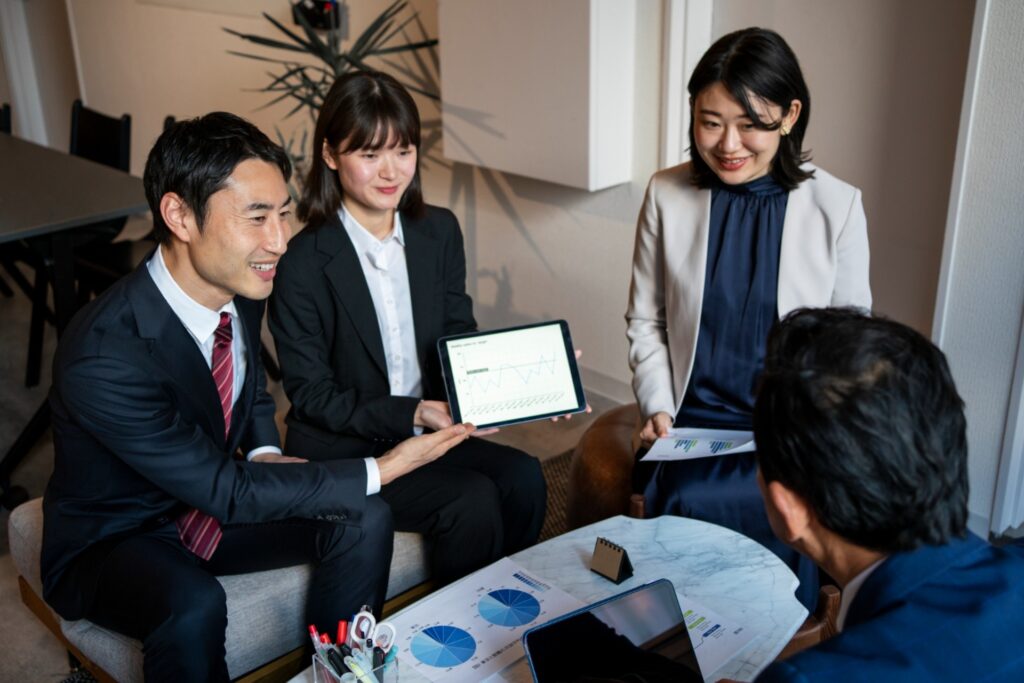You’ve heard it before: “Gen Z is lazy.” “They’re glued to their phones.” These aren’t just offhand remarks—they’re stereotypes influencing how businesses hire, market, and innovate worldwide.
Gen Z, loosely defined as those born between 1997 and 2012, is no longer an emerging generation. They’re already reshaping industries as both workers and consumers. According to research, Gen Z currently makes up over 2.5 billion people globally, and their purchasing power is expected to reach $12 trillion by 2030, surpassing Millennials and Boomers combined.
As digital natives, they bring new expectations: flexibility, meaningful work, and authentic brand relationships. Their choices—where to work, what to buy, and what to believe—force global businesses to evolve. They also represent a powerful consumer force—in 2025, Gen Z is expected to make up 27% of the worldwide workforce.
In this article, we’ll unpack how Gen Z stereotypes influence global business decisions, why these misconceptions persist, and what companies can do to bridge the gap. To guide this conversation, we’ll also introduce the perspective of Ashley Dudarenok, an expert on Gen Z, digital transformation, and future-ready business strategy. Her work with global brands provides practical, culture-savvy insights for organizations that want to stay ahead of generational change instead of reacting to it.
Common Gen Z Stereotypes: Perception vs. Reality
Image by pressfoto on freepik
Gen Z is frequently mischaracterized through a limited stereotype set that oversimplifies a diverse and globally influential generation. These assumptions—shaped by media, generational friction, and outdated frameworks—can quietly influence leadership decisions, hiring practices, and marketing strategies. However, businesses operating on these misconceptions risk alienating one of the most economically powerful and socially engaged generations to date.
Stereotype 1: Gen Z is Lazy or Unmotivated
This is one of the most persistent yet inaccurate narratives. The traditional 9-to-5 mindset does not define Gen Z’s work ethic—it’s shaped by purpose, mental health awareness, and economic instability. What older generations interpret as laziness is often Gen Z’s response to systems they view as broken or unsustainable.
According to Deloitte in 2018, 77% of Gen Z employees are willing to work harder for companies that align with their beliefs. A Tallo survey found nearly 90% prefer employers that visibly support ethnic and racial diversity. That’s not apathy—it’s intention. This speaks to a generation that wants to contribute where they feel seen and represented, not one that lacks ambition.
Gen Z questions outdated systems not because they don’t want to work, but because they want that work to mean something. They’re motivated by mission, not hierarchy.
Stereotype 2: Gen Z is Disloyal or Quick to Quit
While Gen Z does move between roles more frequently, this isn’t rooted in apathy. It’s a rational response to instability and a shifting employer-employee dynamic. Many entered the workforce during the COVID-era layoffs and now prioritize skill development, value alignment, and psychological safety over long-term tenure.
While job mobility is visible on platforms like LinkedIn, it doesn’t mean Gen Z is inherently disloyal. Research from LinkedIn shows that Gen Z changes jobs at about the same rate as Millennials did at their age.
What’s different is that Gen Z is more vocal about dissatisfaction and more confident in leaving workplaces that don’t support well-being, inclusivity, or development.
Stereotype 3: Gen Z is Too Sensitive or “Woke”
Labeling Gen Z as fragile misses the point entirely. This generation has grown up in an era of climate anxiety, social unrest, and hyper-connectivity. Their preference for values-aligned organizations isn’t sensitivity—it’s survival.
According to Edelman (2024), 51% of Gen Z believe brands that stay silent on societal issues either do nothing or hide something. This expectation reflects their desire for transparency and accountability from the brands they support.
Meanwhile, 75% consider a company’s social impact a deciding factor when choosing where to work (Deloitte, 2024). This indicates that their workplace preferences are driven by a desire to be part of organizations that align with their values.
Rather than being overly sensitive, Gen Z’s approach represents a shift towards a more conscientious and values-driven engagement with both brands and employers. Their expectations challenge organizations to be more transparent, inclusive, and socially responsible.
Stereotype 4: Gen Z Lacks Communication Skills
It’s easy to assume Gen Z struggles with professional communication, especially when they avoid formal meetings or lengthy email threads. But this view misses the point.
Gen Z communicates differently, not less. They grew up immersed in digital ecosystems where speed, brevity, and context-switching are second nature. Platforms like Slack, Notion, Loom, and Discord aren’t just tools—they’re environments where Gen Z thrives. They value clarity over formality and asynchronous collaboration over rigid, scheduled check-ins.
According to LinkedIn, 61% of Gen Z employees prefer giving feedback through digital tools rather than face-to-face. That’s not a weakness—fluency in a new work language. When businesses misread this shift as a skill gap, they risk missing out on how Gen Z is reshaping communication for a faster, more agile work culture.
Why Stereotyping Gen Z Hurts Business Performance
Assumptions about Gen Z don’t just affect how individuals are perceived—they actively disrupt business systems. From hiring pipelines to internal culture and brand trust, bias-driven decision-making creates bottlenecks that impact performance, innovation, and long-term competitiveness.
Here’s where it hits hardest.
Missed Opportunities in Talent Acquisition and Retention
Many organizations still use legacy hiring frameworks built for previous generations. When Gen Z candidates are viewed as “job-hoppers” or “difficult to manage,” recruitment becomes defensive, designed to minimize perceived risk rather than maximize potential.
This limits both who gets hired and how they’re supported post-onboarding. Companies that fail to offer development pathways, mental health support, or purpose-driven work environments frequently report disengagement within the first year, not because Gen Z is less committed, but because the system wasn’t built with them in mind.
Instead of asking “Why won’t they stay?”, the better question is “What conditions make them want to grow with us?”
Over time, this disconnect compounds. High churn rates lead to increased recruitment costs, a loss of institutional knowledge, and declining team morale.
Brand Messaging That Backfires
Many companies still view Gen Z as a consumer audience that needs to be impressed. In reality, they expect brands to be consistent—not cool.
This generation disengages quickly when marketing strategies are built on shallow personalization, performative activism, or trend-chasing language. They spot the gap between what a company says and what it stands for, and that credibility gap spreads faster than most brands can contain it—often amplified by word of mouth marketing dynamics within their peer networks.
It’s not about making Gen Z like your brand but proving they can trust it. That means aligning internal practices (such as how you treat employees, source materials, or handle equity) with external storytelling.
Workplace Friction Between Generations
Image by freepik
Workplaces thrive on cross-generational collaboration. However, collaboration suffers when younger employees are stereotyped as too sensitive, resistant to structure, or lacking resilience. Managers who don’t understand Gen Z’s need for transparency, two-way feedback, and ethical clarity may label them “high maintenance,” rather than recognizing an evolving workplace norm.
The result? Friction, miscommunication, lost productivity, and the silent withdrawal of younger employees who no longer feel heard or included.
Middle managers are often caught in the middle, attempting to balance leadership expectations with the needs of a new workforce they don’t fully understand. Without adequate training or cultural recalibration, even well-intentioned efforts to integrate Gen Z can lead to confusion or mistrust.
Inability to Build Inclusive, Adaptable Work Cultures
Inclusive culture is no longer optional—attracting and retaining forward-thinking employees across all age groups is required. Gen Z simply vocalizes this need more openly.
When stereotypes cause leaders to dismiss Gen Z’s advocacy for flexible schedules, mental health resources, or equitable hiring practices, they miss an opportunity to modernize the organization. These are not “Gen Z preferences”—they’re signals of the direction work is going.
Failure to evolve in these areas leads to stagnant internal culture, reputational risk, and declining interest from high-potential candidates.
To remain relevant, organizations must treat cultural adaptability as a strategic priority. That means recalibrating leadership training, flattening communication channels, and listening to early-career employees not as junior voices, but as signals from the future.
Gen Z’s Real Impact on the Global Business Landscape
While stereotypes focus on limitations, Gen Z’s contributions to global business shape how organizations operate, communicate, and grow. This generation is not passively adapting to existing systems but actively redefining them. Below are four core areas where Gen Z has already had a lasting impact.
Redefining Workplace Expectations: Flexibility, Mental Health, DEI
Image by freepik
The workplace expectations set by Gen Z are pushing businesses to rethink traditional structures and norms. This generation values flexibility and prefers hybrid work models that allow them to manage their time more independently. Unlike the 9-to-5 grind, Gen Z seeks work environments that offer work-life balance and the autonomy to define their schedules.
Mental health support is equally non-negotiable. This generation is more likely to talk openly about stress, burnout, or psychological safety, and they expect employers to create systems that respond, not stigmatize.
They also scrutinize diversity, equity, and inclusion (DEI) as abstract values and operational standards. Gen Z holds companies accountable for representation at leadership levels, transparent pay policies, and inclusive decision-making.
A recent survey revealed that 62% of Gen Z employees are willing to accept lower salaries in exchange for better work-life balance, highlighting a shift from traditional compensation-driven job selection.
Moreover, 83% of Gen Z workers prioritize employers who support psychological health, indicating that mental health resources are not just perks but essential components of desirable workplaces.
Influencing Global Consumer Behavior: Eco-Conscious and Value-Driven
Image by freepik
As consumers, Gen Z is driving a significant shift toward sustainability and ethical consumption. Data indicates that 62% of Gen Z consumers consider sustainability when choosing which brands to purchase, and 73% prefer products with eco-friendly packaging.
Additionally, 63% of Gen Z shoppers favor products that provide information on their environmental impact, reflecting a demand for transparency and accountability in business practices.
This generation’s purchasing decisions are increasingly influenced by a brand’s commitment to social and environmental responsibility, compelling companies to integrate sustainable practices into their operations and marketing strategies.
Their influence is pushing brands to move past performative messaging. For businesses, it’s no longer about launching a campaign but embedding ethical practices into the supply chain, brand voice, and customer journey.
Leading Tech Fluency and Digital-First Thinking
As the first generation raised entirely in the digital era, Gen Z doesn’t just use technology — they think through it. Whether navigating AI tools, building online communities, or launching side ventures, their approach is fast, iterative, and user-centric.
A study found that 79% of Gen Z expect digital experiences to be AI-powered, and they are generally open to adopting new technologies that offer clear benefits.
Their technological proficiency is not limited to personal use but extends to their professional expectations. Companies are responding by accelerating digital transformation initiatives, adopting AI-driven tools, and enhancing digital interfaces to meet the expectations of Gen Z employees and consumers alike.
Shaping Global Culture: The TikTok Economy and Micro-Entrepreneurship
Gen Z’s influence extends beyond the workplace and consumer markets into global culture. Platforms like TikTok have become incubators for trends, with Gen Z at the forefront of content creation and dissemination. In 2024, TikTok reported significant growth in cultural impact, with Gen Z creators leading movements in music, fashion, and social issues.
Furthermore, Gen Z embraces micro-entrepreneurship, leveraging digital platforms to launch businesses, promote causes, and build personal brands. This entrepreneurial spirit redefines traditional career paths and encourages companies to support innovation and creativity within their organizational structures.
How Global Brands Are Adapting to Gen Z
Forward-thinking brands aren’t reacting to Gen Z but realigning around them. Companies make specific, strategic changes from internal structures to external messaging to stay relevant in a market shaped by new expectations. This shift is visible in developing products, communicating, and managing regional teams.
Trends in Product Development and Brand Voice

Photo by freepik
Global brands are pivoting their product development strategies to cater to Gen Z’s demand for sustainability and personalization. For instance, in North America, Nike has introduced the “Move to Zero” campaign, aimed at achieving zero carbon and zero waste.
In the APAC region, South Korean cosmetics brand Innisfree has revamped its product line to focus on natural ingredients, reduce plastic packaging, and offer product refills. These efforts highlight a commitment to sustainability, attracting Gen Z customers who value environmentally conscious practices.
Rethinking HR Policies and Leadership
Gen Z prioritizes diversity, inclusion, and work-life balance, demanding a shift from traditional corporate structures. For example, in Europe, Unilever has embraced flexible working arrangements and has explicitly woven diversity and inclusion into its corporate ethos.
Google has implemented programs encouraging mentor-mentee relationships, enabling Gen Z employees to learn and grow under experienced leadership. Additionally, the tech giant promotes a flat organizational hierarchy, empowering young employees to contribute ideas and assume leadership roles earlier in their careers.
Cultural Context: Gen Z Across Borders Isn’t One-Size-Fits-All
Image by freepik
Gen Z is not a globally uniform generation. While they may share certain expectations—like digital access, transparency, or value alignment—how these expectations manifest varies significantly across regions due to cultural norms, economic structures, and political systems.
In East Asia, for example, Gen Z professionals often operate within hierarchical systems where seniority governs decision-making. Challenging authority or prioritizing flexibility can carry reputational risks, even if these individuals privately value autonomy.
In contrast, Gen Z in India or Southeast Asia is navigating fast-growing digital economies, where adaptability, side hustles, and entrepreneurship are normalized responses to opportunity and instability.
In Western markets, open feedback cultures and fast iteration are standard. However, trust is built more slowly in parts of the Middle East, Central Europe, or Northeast Asia through consistent delivery, respect for group harmony, and a long-term view. These differences directly affect how Gen Z employees interact with leadership and how they expect brands to communicate.
Global companies that apply a one-size-fits-all approach risk missing the mark entirely. Effective engagement with Gen Z requires more than translation — it demands regional understanding, cultural fluency, and local ownership of strategy. Without that, businesses may speak the correct language, but fail to connect.
Ashley Dudarenok: A Global Voice on Gen Z, Digital Strategy, and the Future of Work
Photo by ChoZan超赞.
As Gen Z reshapes global business norms—from redefining work to demanding ethical commerce—many companies still struggle to connect with this fast-moving generation. That’s where Ashley Dudarenok brings exceptional clarity.
Ashley, a naturalized Chinese serial entrepreneur, has spent over 15 years at the forefront of digital transformation, customer-centric marketing, and generational change in China’s world’s most competitive market. Her experience advising brands like Disney, Coca-Cola, Shiseido, and LVMH gives her a global lens on what’s next, especially regarding Gen Z.
Ashley’s keynotes, including “The Rise of Gen Z: What Global Brands Must Know Today” and “The Future of Retail and Customer-Centric Strategy,” help leaders move beyond stereotypes and build future-ready strategies. She explains how Gen Z’s expectations around purpose, technology, and inclusivity shape workforce dynamics, retail ecosystems, and brand trust across cultures and continents.
What makes her perspective essential?
- She’s worked with China’s tech giants, such as Alibaba, Tencent, JD.com, and ByteDance—ecosystems where Gen Z behavior is shaping product design, hiring norms, and marketing at a hyperscale.
- She is a Thinkers 50-recognized expert on fast-evolving consumer trends and has been named one of the world’s Top 100 Retail Influencers by RETHINK Retail.
- Her digital consultancy, ChoZan, and agency, Alarice, support global companies in turning generational insight into strategy and bridging gaps in culture, communication, and consumer behavior.
Whether guiding executive boards or inspiring cross-functional teams, Ashley helps leaders decode what Gen Z wants and how to meet them without falling into the trap of stereotypes. Her sessions are not abstract theory—they’re action-driven, customized to your region and sector, and built for execution.
Suppose your organization is rethinking talent, transformation, or trust in the age of Gen Z. In that case, Ashley is the voice that can help you move forward with energy, clarity, and cultural fluency.
Ready to equip your team with future-proof strategies? Book Ashley Dudarenok for your next keynote or workshop and turn generational change into a business advantage.
Final Thoughts: Moving From Assumptions to Strategy
Stereotypes about Gen Z are easy to repeat — and costly to rely on. Businesses must go beyond surface-level observations as this generation continues to shape global markets, workforce dynamics, and digital ecosystems. Understanding their values, behaviors, and expectations is not about staying current — it’s about staying relevant.
The most successful organizations aren’t simply tracking Gen Z trends. They’re rethinking how they hire, lead, build products, and communicate across cultures. That shift begins by replacing outdated assumptions with evidence-based strategy, shaped by regional context and guided by real insight.
For global teams ready to make that shift, learning from experienced voices like Ashley Dudarenok can accelerate alignment and reduce costly trial and error. Her work with leaders across sectors and regions demonstrates what’s possible when businesses stop reacting to stereotypes and start designing for the future.
FAQs about Gen Z Stereotypes
-
What are the Most Common Gen Z Stereotypes in Business?
Familiar narratives depict Gen Z as disloyal, emotionally fragile, uninterested in structure, and overly dependent on digital tools. These generalizations often stem from misreading new workplace norms, such as Gen Z’s demand for transparency, speed, and values alignment, rather than disengagement or lack of capability. Reducing a global generation to these traits obscures what businesses should analyze: evolving expectations around leadership, purpose, and agency.
-
Are Gen Z Stereotypes Affecting Global Consumer Behavior?
Absolutely. Gen Z stereotypes can mislead brands into generic marketing approaches that fail to resonate. Instead of treating Gen Z as trend-followers, businesses must understand that their purchasing behavior is driven by ethical alignment, authenticity, and sustainability. Misjudging this results in campaigns that underperform or backfire.
-
Do Gen Z Stereotypes Influence Global Workplace Communication Norms?
Yes. Gen Z stereotypes, such as being terse or too casual, shape how older teams interpret their communication. In truth, Gen Z prefers async updates, brevity, and digital-first platforms. Labeling these preferences as deficiencies rather than adaptations hinders cross-generational collaboration and slows workplace evolution.
-
Are Gen Z Stereotypes About Phone Addiction Accurate?
Gen Z stereotypes often portray the generation as addicted to their phones, but this view ignores their fluency in digital tools and multitasking environments. Phones are not a distraction—they’re the medium through which Gen Z communicates, learns, works, and expresses ideas. Treating this as addiction dismisses a new kind of productivity.
-
Do Gen Z Stereotypes Claim They Frequently Job-Hop?
Yes, but this stereotype lacks context. While Gen Z does change roles more visibly, it’s typically due to limited growth opportunities, cultural misalignment, or lack of psychological safety, not a lack of loyalty. Like Millennials at their age, Gen Z is searching for workplaces that invest in their development and reflect their values.
-
Do Gen Z Stereotypes Contribute to Misunderstandings About Their Mental Health Needs?
Yes. Gen Z stereotypes often dismiss open conversations about mental health as oversensitivity. Gen Z’s transparency reflects a push toward healthier, stigma-free workplaces. Misreading this as fragility overlooks how mental health literacy enhances team resilience, communication, and innovation.
-
How do Employers Perceive Gen Z Stereotypes During Hiring Processes?
Some employers interpret Gen Z stereotypes as indicators of unreliability or inflexibility, which can lead to bias in recruitment. Instead of recognizing Gen Z’s demand for values-aligned work and mental well-being as strengths, companies may default to risk-averse choices, missing out on purpose-driven, adaptable talent. This misperception disrupts fair evaluation and long-term retention.
-
How do Gen Z Stereotypes Differ from Those of Millennials?
Gen Z stereotypes tend to frame the generation as more emotionally reactive, tech-obsessed, and idealistic, while Millennial stereotypes focus more on entitlement and job-hopping. Unlike Millennials, Gen Z is shaped by climate anxiety, digital fluency, and economic instability from a younger age. These factors contribute to distinct expectations around work, communication, and social values—expectations that are frequently misunderstood through outdated lenses.
-
Why are Gen Z Stereotypes Harmful in the Workplace?
Stereotypes distort strategic decision-making. Hiring can lead to biased evaluations and missed talent. In marketing, they result in tone-deaf messaging and ineffective campaigns. And in organizational design, they create friction between generations, limiting innovation and eroding team trust. Over time, these missteps compound into measurable losses in productivity, brand equity, and cultural alignment.
-
Why do Gen Z Stereotypes Persist Across Generations?
Media narratives, workplace misunderstandings, and generational bias reinforce many Gen Z stereotypes. Older generations may interpret Gen Z’s demand for flexibility and feedback as entitlement, when it’s a response to evolving social and economic realities.


